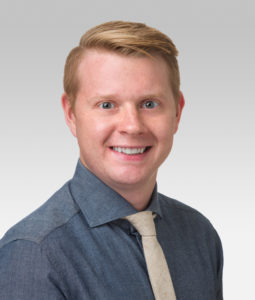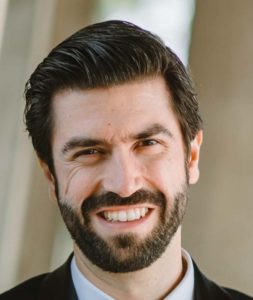
The Institute for Global Health (IGH) has established the Center for Pathogen Genomics and Microbial Evolution (CPGME), which will apply lessons learned during the COVID-19 pandemic to the tracking and prevention of future threats, as well as investigate the ongoing problem of antibiotic-resistant infections.
Egon Ozer, MD, PhD, ’08 ’12 GME, assistant professor of Medicine in the Division of Infectious Diseases and director of the new center, said that understanding the genomics of pathogens is just as important as studying the genomics of humans in preventing disease.
“We know a lot about the human genome, but we need to learn more about the pathogens that cause infection,” Ozer said. “Understanding how pathogen genetics influences the type of disease, how readily they spread and how quickly they evolve are all things we hope to better study and coordinate with this center.”
Dangerous pathogens can emerge anywhere in the world and global cooperation is necessary to help avoid future pandemics, according to Robert Murphy, MD, ’81 ’84 GME, the John Philip Phair Professor of Infectious Diseases and executive director of the Institute for Global Health.
“These pathogens don’t know any political boundaries,” Murphy said. “You’ve got to be out in the world — if you study pathogen genomics only in the United States you’re going to miss the next epidemic.”
COVID-19 and Beyond

The rapid emergence and spread of COVID-19 exposed the critical need to quickly uncover the pathogen causing infection and how it was transmitted. Microbial genomics, or the study of the complete genetic code of the virus, was instrumental in identifying SARS-CoV-2 as the causative agent of the disease. This enabled vaccine development to start within weeks of the complete genetic map of the virus being shared.
As the pandemic progressed, genomic sequencing was further needed to monitor the emergence of new variants of the virus that could spread faster, evade vaccines and treatments or cause more severe disease. A team of Northwestern Medicine scientists — many of whom are founding members of the new center — have been tracking the evolution of SARS-CoV-2 in Chicago. Their work has been pivotal in understanding how the virus spread to Chicago and what new variants have emerged in the city, in addition to other work in Nigeria and around the world.
“From new, highly transmissible SARS-CoV-2 ‘variants of concern’ to antimicrobial resistance, we face a lot of real challenges in infectious disease that can only be addressed through pathogen genomics,” said Judd Hultquist, PhD, assistant professor of Medicine in the Division of Infectious Diseases and associate director of the CPGME.
The CPGME will expand this work, forging new connections with public health agencies and other academic institutions to better monitor the evolution of SARS-CoV-2, according to Ramon Lorenzo-Redondo, PhD, research assistant professor of Medicine in the Division of Infectious Diseases and bioinformatics director of the CPGME.
“When entirely developed, this approach can be one of the most powerful resources to inform public health measures against infectious pathogens and ultimately prevent future epidemics,” Lorenzo-Redondo said. “We want this center to build expertise in pathogens genomics and evolution to generate a network of researchers that are capable of managing current and future infectious disease threats.”
While the COVID-19 pandemic is still ongoing, the center is also looking ahead to other threats including anti-microbial resistance. This threat is building, Ozer said, and will require new investment in pathogen science to prevent another disaster.

“Antimicrobial resistance is not going to go away — the coronavirus is not going to be the last pandemic pathogen we have to deal with,” Ozer said.
Pathogen Genomics in Practice
One of the first new projects for the center will analyze the genetic code of coronavirus strains in children in Chicago, under the leadership of Larry Kociolek, MD, ’14 GME, assistant professor of Pediatrics in the Division of Infectious Diseases. Sequencing SARS-CoV-2 genomes from both standard community testing and a prospective testing program in schools, scientists will seek to determine coronavirus infection patterns in children.
“If SARS-CoV-2 genomes within a school are very similar to each other, that could suggest there was transmission in the classroom,” Ozer said. “But if they are different, that points to community spread.”
Another project, led by Mehreen Arshad, MBBS, assistant professor of Pediatrics in the Division of Infectious Diseases, will examine antibiotic prescribing attitudes and genetic characteristics of antimicrobial-resistant pathogens in both the United States and in Pakistan. The study will attempt to present universal laboratory standards for testing antimicrobial resistance around the world, something that could help stop the next pandemic before it spreads.
“Coming up with more universal ways to analyze this data will help us understand what exactly makes a pathogen antibiotic-resistant,” Ozer said. “Stopping these as they develop, or even before they develop, is really the driving goal.”






